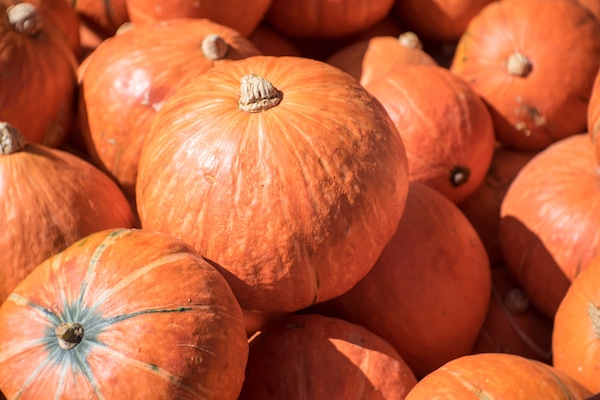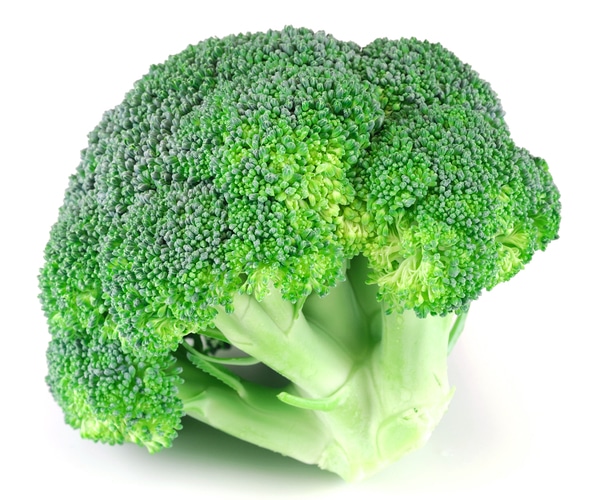I’ve had and fostered dogs who were blind; pups who were vision impaired; and aging dogs whose vision gradually diminished over time. Many animal behaviorists will tell you that a dog with decreased vision can often learn to get along reasonably well, in a stable home environment with a fairly predictable floor plan. This is because canines depend so heavily on their sense of smell and hearing.
However, it’s also true that dogs — just like humans — are susceptible to cataracts, glaucoma, macular degeneration, and a host of other vision-threatening ailments. So why not give our pets as many sensory advantages as possible? The daily dietary choices we make for our canines can either support or hinder optimal health. Many of these choices may help support healthier vision, as well.
You can easily harvest a bumper crop of wholesome winter fruits and veggies that help promote pooch peeper wellness. Add in a few other produce aisle staples, and your grocery list is now naturally geared toward bright eyes and bushy tails. Remember that regular vet visits remain vital, as nutritional value alone can’t always treat or prevent certain health issues. But these whole foods contain compounds that could help safeguard the way your pup sees the world.
1. Pumpkin

Pumpkins by Shutterstock.
Turns out, there’s a reason Charlie Brown called it great. Besides being a known digestive healer and regulator, pumpkin is packed with multiple carotenoids that provide that beautiful bright orange color. According to holistic veterinarian Dr. Joanne Stefanatos, author of Animals and Man, zeaxanthin and lutein help support overall eye health; and beta-carotene helps squash (ha, see what I did there) free radicals. My own aging pup Grant especially loves toasted pumpkin seeds, which serve up zinc, inflammation-busting Omega-3, and immunity-enhancing phytosterols. Simply spread some raw seeds on a cookie sheet, give them a misting of olive oil, and stir occasionally as you bake in a 300-degree-F oven for about 30 minutes.
2. Sweet Potatoes
Orange you glad about sweet potatoes, which are brimming with vision-friendly beta-carotene? They also contain compounds called anthocyanins, which help calm inflammation and neutralize free radicals. Best of all, whipping up a batch of Sweet Potato Chews is super-easy, so you’ll always have an eye–deal, yummy rawhide substitute. Scrub a spud, cut it into thin slices, spray these with olive oil, arrange on a cookie sheet, and bake at 250 degrees F for three hours. They’ll store well in the fridge for a couple of weeks.
3. Kale
Chop up some kale, drizzle or mist it with about a tablespoon of coconut oil, bake on a cookie sheet for 20 minutes and voila — another yummy snack to protect your pup’s peepers. The American Optometric Association (AOA) once dubbed kale the “internal sunglasses” of the vegetable world. Must be all that zeaxanthin and lutein, which help safeguard sight against oxidative stress.
4. Carrots
These make a wonderfully crunchy, natural rawhide alternative for your canine. But as your dog chomps away contentedly, he’s also getting a serious boost of beta-carotene, potassium, niacin, calcium, phosphorus, magnesium, and vitamins A, B, C, D, E, and K. Better yet, carrots are loaded with lycopene and lutein — essential phytonutrients that may help protect eyes from free radical damage and UVB radiation.
5. Broccoli

Broccoli by Shutterstock.
Okay, broccoli gets a pretty bad rap from preschoolers everywhere. But it’s also pretty powerful when it comes to healthy vision. It’s positively packed with beta-carotene; and also an excellent source of zeaxanthin and lutein. Broccoli and its sprouts also contain a compound called sulphuraphane, which can help fortify the immune system against free radicals. Boil a couple small florets for three to four minutes, then let you pup munch away. Furry friend a bit finicky? Save the cooking water, and mix it into his bowl at mealtime.
6. Blueberries
These tiny blue tidbits are teeming with vision-friendly compounds, including eye-friendly lutein and zeaxanthin. According to Dr. W. Jean Dodds, author of Canine Nutrigenomics, they also contain flavonoids such as resveratrol, quercetin, and rutin, which are thought to help protect against macular degeneration. Add in anthocyanins, which are a special type of phytonutrient that help safeguard nighttime vision. And finish with a vital boost of vision-preserving selenium and zinc. We like to freeze blueberries, and award a couple each day as tasty training treats.
7. Tomatoes
Most people have heard about lycopene, the eye-friendly phytonutrient and carotenoid found in bright red fruits and veggies. Tomatoes are a great source of lycopene, which can help guard against macular degeneration and sun-related eye damage. Plus, they contain a nice healthy dose of the peeper-protecting phytonutrient lutein. Since feeding your dog an actual tomato tends to get pretty messy, consider freezing miniature cherry tomatoes and feeding them outdoors. But remember— lycopene is more bioavailable when tomatoes are cooked. So you can also freeze tomato paste in ice cube trays.
Or, try this easy food-topper recipe:
Rover’s Red Sauce
Ingredients
- ½ cup plain, organic tomato sauce
- ½ teaspoon extra-virgin olive oil
- 2 teaspoons parsley
- 1 teaspoon ground flaxseed
Directions
- Stir together, refrigerate, and mix a tablespoon into food once per day. For pups with light-colored fur, wipe face area with a damp cloth immediately after meal is finished.
Are certain vision-friendly foods particular favorites with your pup? Share your insights here!
The post 7 Foods That Will Naturally Support Your Dog’s Vision appeared first on Dogster.
No comments:
Post a Comment